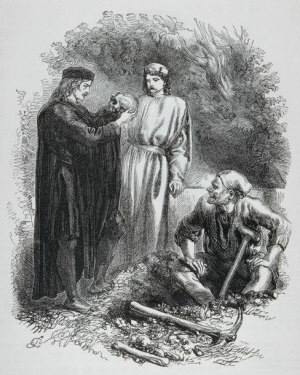
In the end, I would not trade this project for any other assignment. Though at times it was challenging and there was a lot of digging for research involved, I found that I truly feel benefited from the things I am taking away from it.
The blog, itself, was a challenge because I found myself nervous about others' opinions of my writing: what I chose to address, my writing style, the points that I made. This was especially intimidating considering the nature of the course- British Literature. I find that I may have assumed to much that my writing style would be critiqued along the same lines of Spenser or Milton or Webster. Looking back on that fear, I realize that some people are good writers, some are great writers, and some have the ability to take you to another world with words. But regardless of these things, all people's opinions are important, and thus, no matter the style in which they write, it's honorable that they're writing and expressing in the first place.
Now, onto my topic and my findings. I chose lycanthropy and the nature of werewolves during the period and beyond due to the fascination and fear I had in regards to the topic when I was young. The dream mentioned in one of my earliest entries was the motivation for further research, as I have always wondered what others think and have thought of were-beings.
Some of the most striking conclusions that I came to were a) the impact of fear can lead to many illogical and fantastical tales and b) human fascination with the supernatural is not likely to ever cease. This are two very good things, in my opinion. Though I don't advocate the sole dependence on emotion in place of logic, I think it is important to document the role emotion plays in society, as a whole. Whether good, bad, or ugly, emotions can lead a nation from one perspective to its opposite in a very short amount of time. For example, the beginning of the Renaissance was filled with superstitious obsessions and the fears and explanations that come with them, whereas the more scientifically driven end of the period led to the more rational explanations and therefore a decrease in lore-based explanations. As emotional attachment to understanding shrunk, so did the need for the characters of folk-lore as scapegoats and criminals. On the other hand, I did say that human fascination with the supernatural is not likely to ever cease to exist. We, by nature, are inclined to ask questions... As long as we are human, we will continue to ask things that have no clear answer. And therefore, constructs of the human imagination will always be present as explanations for the unexplained.
I believe the greatest concept I will take from this course is the importance of understanding the flaws of human nature. As Faustus and Satan were driven for power, and Red Crosse and Hamlet were seeking honorable heroism, we as normal, everyday people will continue to embody these desires throughout our lifetimes. It is what we do in reaction to these flaws that defines us as moral and honorable.
I can guarantee that I will continue to do research of the concepts we've studied this semester based on the number of unanswered questions our topics inspired (see what I mean about the ever-present need for answers?). Whether or not this blog continues to be a part of my project, I cannot currently say, but a larger part of me hopes that it is something I'll return to in future research.
All in all, this was a wonderful course which has inspired me to strive hard for success and the betterment of my mind. I hope that future courses are equally as enriching and interesting as this has been. Thanks to the path this course has helped me to discover, I am well on my way to being a life-long seeker of knowledge. (Just not knowledge that is not meant for me... Faustus did have a moral to the story. :D)



 Revenge- a detail in our lives that we are forever seeking to comprehend. Why do humans need it, and does it ever truly satisfy?
Revenge- a detail in our lives that we are forever seeking to comprehend. Why do humans need it, and does it ever truly satisfy?





